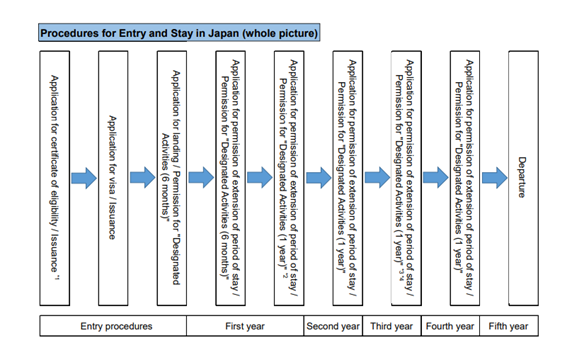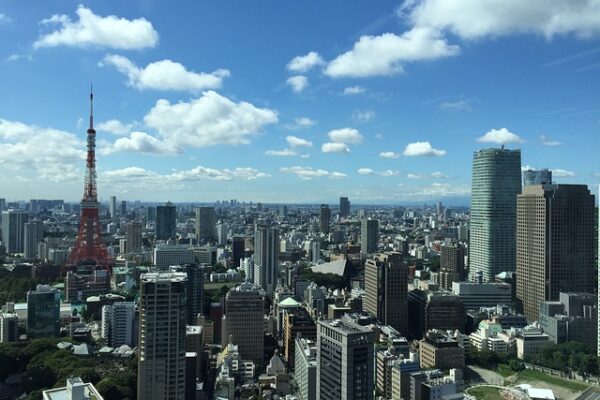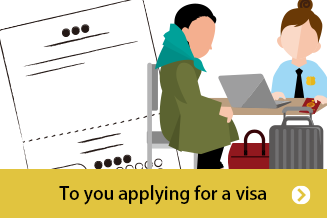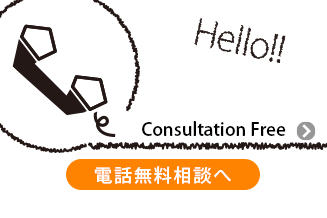Visa application for Fourth-generation Japanese (Nikkei Yonsei)

2023,07,30
Updated information: New Fourth-generation Japanese visa (4 sei visa)
Until recently, Japan has allowed the entry of up to third-generation Japanese (grandchildren of Japanese individuals). However, there have been requests from overseas Japanese communities, where many Japanese reside, requesting that fourth-generation Japanese be granted the same visiting privileges to Japan as third-generation Japanese. Additionally, among the fourth-generation Japanese, there are those who have a strong admiration and interest in Japan, the homeland of their great-grandparents, and who wish to visit their country. In response to these circumstances, a new “Acceptance Program for Fourth-generation Japanese” has been established to enable the entry of fourth-generation Japanese into Japan and enable them to learn about Japanese culture, among other activities.
Related article: Visa Application for Japanese Third Generation (Nikkei Sansei)
What fourth-generation Japanese can do
Under this program, fourth-generation Japanese can stay in Japan for a maximum of five years. Moreover, they are allowed to engage in employment activities on the condition that they are involved in activities to learn Japanese culture, etc.

1. To learn Japanese language and culture
Examples:
– Attend free Japanese language courses organized by local government and study Japanese on a weekly basis.
– Attend classes such as Judo or Tea Ceremony to study Japanese culture on a weekly basis.
– Participate in neighborhood associations or firefighting brigades and engage in regular activities to foster community interactions.
These activities should be carried out at least once a week and on an ongoing basis.
2. Work activities
Fourth-generation Japanese who enter under this program are allowed to work. However, the following points should be noted:
- Engaging in activities to learn Japanese language and culture:
In order for fourth-generation Japanese to work, they are required to participate in the activities mentioned in 1 above, i.e., activities to learn Japanese language and culture. Therefore, it is not permitted for them to work without engaging in such activities. - Nature of work:
They are not allowed to engage in businesses regulated by the businesses prescribed in the “Act on Control and Improvement of the Amusement and Entertainment Business.” - Other considerations:
While there are no restrictions other than those mentioned in ① and ② above under immigration laws regarding the employment of fourth-generation Japanese, other labor-related laws outside of immigration regulations will apply separately.
Conditions for using this program
1. Securing a Supporter
A Fourth-generation Japanese Supporter can be an individual or organization that provides various support free of charge to enable fourth-generation Japanese to carry out activities in Japan such as learning Japanese language and culture. When a Fourth-generation Japanese enters and stays in Japan under this program, a supporter is always required.
2. Application for Certificate of Eligibility
The Fourth-generation Japanese Supporter in Japan acts as a representative for the Fourth-generation Japanese and applies for the Certificate of Eligibility (Designated Activity) at a regional Immigration Bureau in Japan.

*From Website of Immigration Service Agency
Requirements
- Being a Fourth-generation Japanese.
- Being between 18 and 30 years of age at the time of entry to Japan.
- Possessing a return travel ticket or sufficient funds to purchase such a ticket.
- Being able to support oneself financially during the stay in Japan.
- Being in good health.
- Having good conduct.
- Having insurance to cover death, injury, or illness during the stay in Japan.
- Demonstrating the ability to understand basic Japanese through an examination or other methods or demonstrating the ability to understand some basic Japanese through an examination.
- Having a secured Fourth-generation Japanese Supporter.
- Not having stayed in Japan for a total of five years or more through the use of this program.
The “Fourth-generation Japanese Supporter” mentioned in the above conditions is a vital part of the application process for utilizing this program.
Necessary Documents

Please ensure that all necessary documents are provided when applying for entry under this system.
1.Documents to prove “Fourth-generation Japanese” status
- Family register (Koseki tohon) or certificate of exclusion from the family register (Joseki-tohon) of the great-grandparents
- Marriage certificate of the great-grandparents, grandparents, and parents issued by the authorities of the home country (foreign country)
- Birth certificate of the grandparents, parents, and the Fourth-generation Japanese issued by the authorities of the home country (foreign country)
- Certificate related to the acknowledgment of the Fourth-generation Japanese (if applicable)
- Certificate of acceptance of birth registration or acknowledgment of birth (if registered with Japanese authorities)
- Official documents proving the existence of the great-grandparents, grandparents, and parents (e.g., passports, death certificates, driver’s licenses, etc.)
If one of the grandparents or parents is already residing in Japan as a Japanese descendant [second or third generation], it is sufficient to provide documents proving their relationship with the Fourth-generation Japanese.
2.Documents to prove that the Fourth-generation Japanese is “between 18 and 30 years old”:
Identification documents (passport, ID card, driver’s license, voter ID card, etc.).
3.Documents to prove that the Fourth-generation Japanese has sufficient funds
Certificate of bank balance and certificate of employment (if applicable).
4.Document to prove that the Fourth-generation Japanese is “in good health”:
Health certificate.
5. Document to prove that the Fourth-generation Japanese has “good conduct”:
Criminal record certificate or certificate of no criminal record (issued by the competent authority in the country of nationality or the country of previous residence before entering Japan).
6. Document to prove that the Fourth-generation Japanese has “insurance coverage for death, injury, or illness during the stay in Japan”:
Declaration form.
7. Document to prove that the Fourth-generation Japanese has the ability to understand “basic Japanese” either through examination or other methods:
Document certifying Japanese language proficiency.
8. Other documents to clarify the purpose of entry and post-entry activities:
Declaration form.
Requirements for being a Supporter
1. Individual Supporters:
- Individuals residing in Japan, regardless of nationality
If not a Japanese citizen, the individual must be a permanent resident or a special permanent resident. - Each supporter can provide support for a maximum of two Fourth-generation Japanese.
- Individuals who wish to become supporters must submit a declaration stating their commitment to providing free support to the Fourth-generation Japanese during the immigration process.
2. Organizational Supporters:
- Non-profit organizations engaged in international exchange or community service in the region where the supported Fourth-generation Japanese reside.
- When an organization becomes a supporter, each full-time staff member can support a maximum of two Fourth-generation Japanese.
- Organizations applying as supporters must submit a declaration and relevant documentation stating their commitment to providing free support to the Fourth-generation Japanese during the immigration process.
3. Common Requirements for Individual and Organizational Supporters:
- No past criminal convictions related to immigration laws or violations.
- No commitment in any wrongful or unjust acts related to immigration laws.
- Ability to ensure reliable and appropriate support for the supported individuals. For instance, individuals associated with organized crime are not eligible to meet this requirement.
4. Other Considerations:
- If there is an intermediary between the Fourth-generation Japanese and the supporter, the intermediary must provide their services free of charge (including cases where vocational introductions are involved).
- If the intermediary conducts vocational introduction businesses during the process, they must obtain the necessary permits or make appropriate declarations according to the Employment Security Act to legally operate such activities.
Summary
Thus, this visa requires a lot of preparation before application. We offer assistance with visa applications, leveraging our experience and knowledge of immigration laws. If you are considering applying for a visa as a Fourth-generation Japanese, please contact us through the inquiry form. We are pleased to help your applications.
Profile
Ami Ito
– Spent high school years in the U.K. and graduated from a local school.
– Studied mainly intercultural communication at Sophia University’s Faculty of Foreign Languages, English Department.
– Worked in the overseas department of SEIKO for 11 years after graduation.
– Over 10 years of experience teaching English to high school students, with a TOEIC score of 970 and a Class A level in the United Nations Associations Test of English.
– Serves as a director in charge of international affairs at the Chiba Administrative Scrivener Association.
– Officially registered on the Financial Services Agency’s “List of Professionals (Administrative Scriveners) in Chiba Prefecture capable of providing services in foreign languages.”
News and Blog








